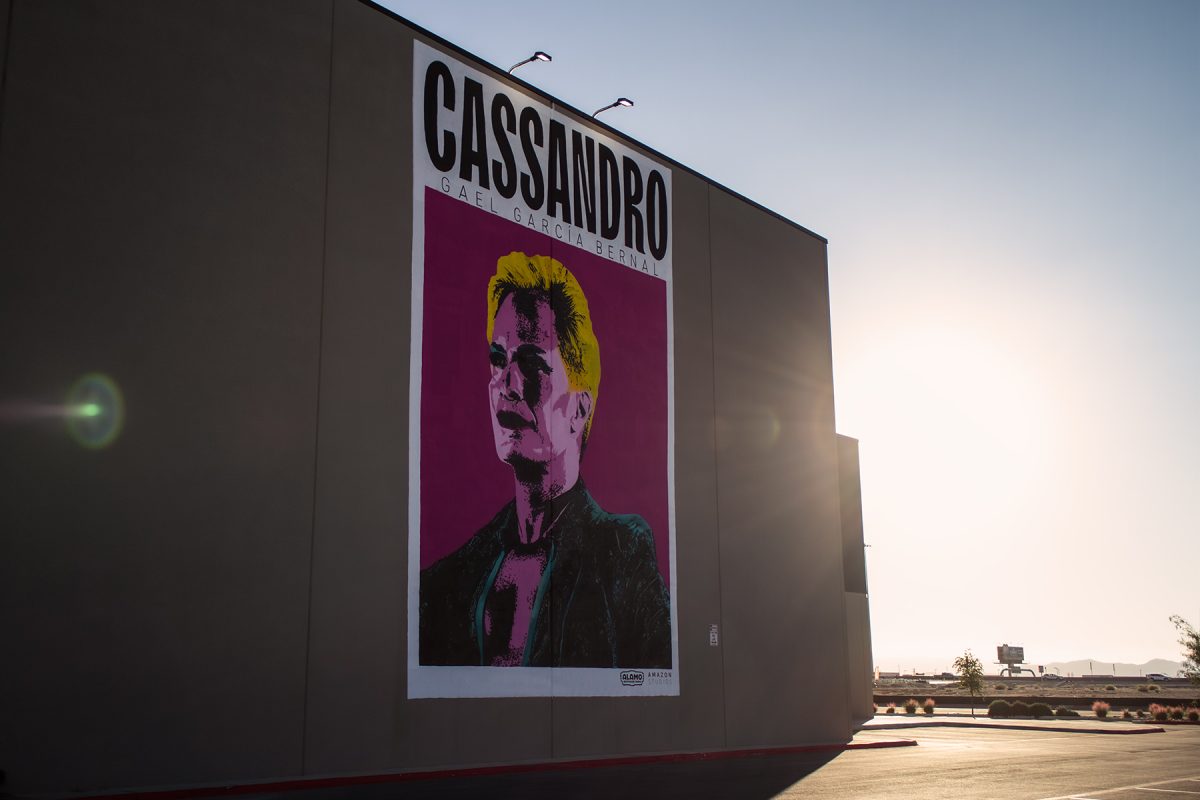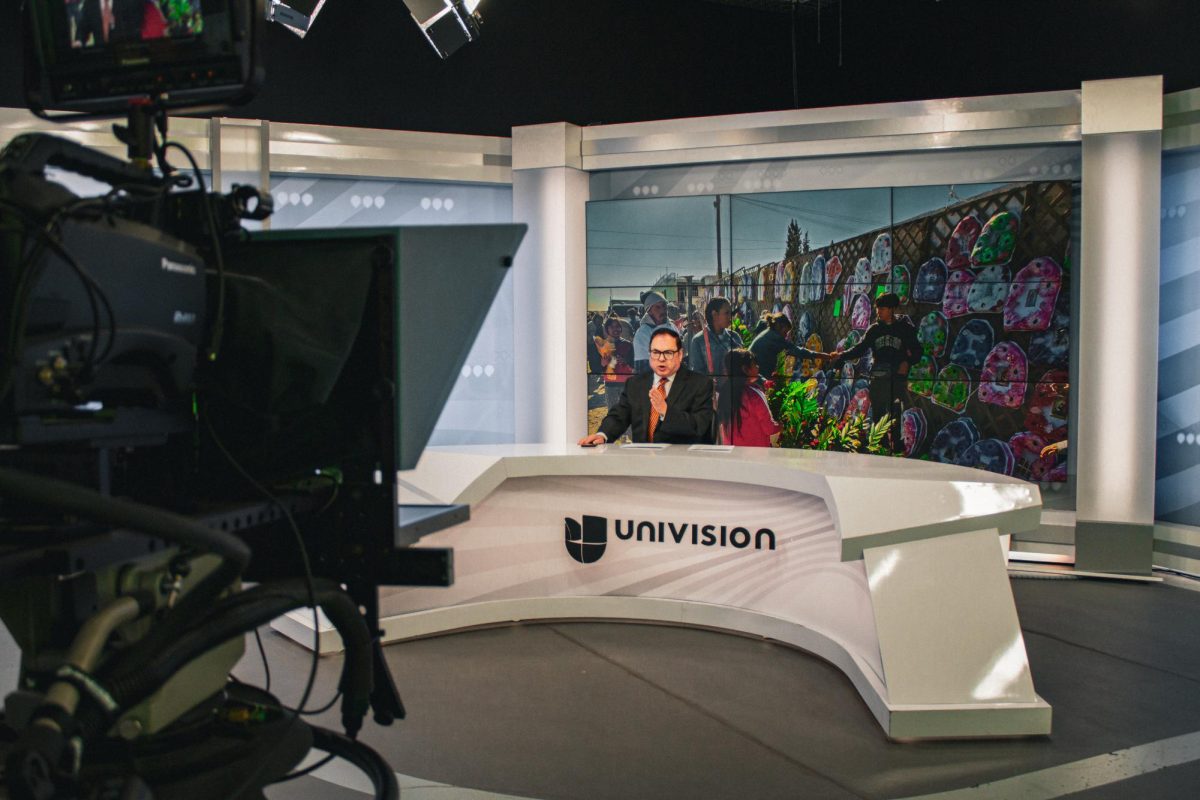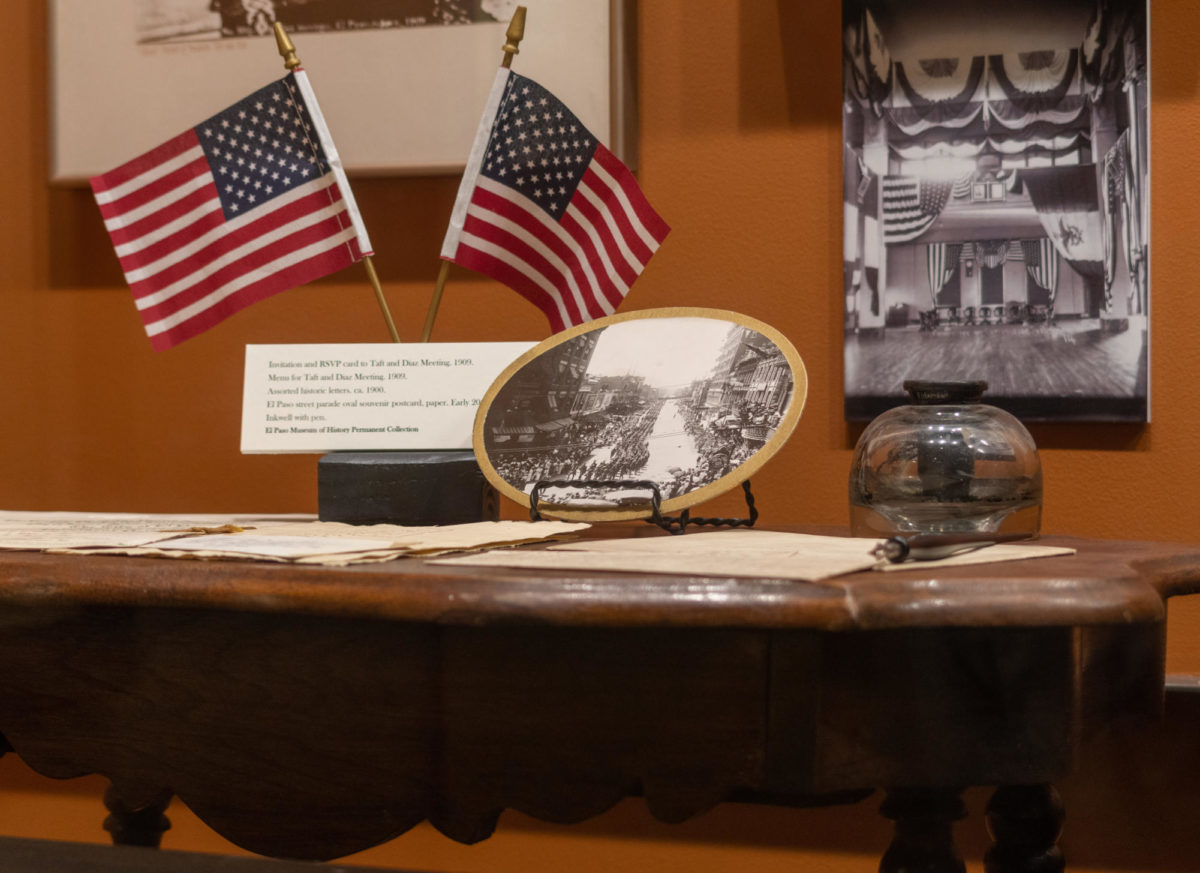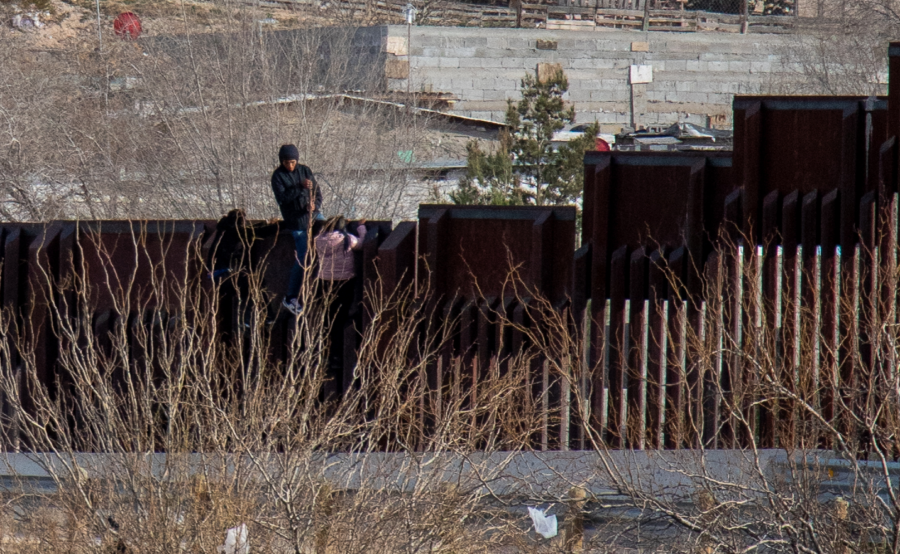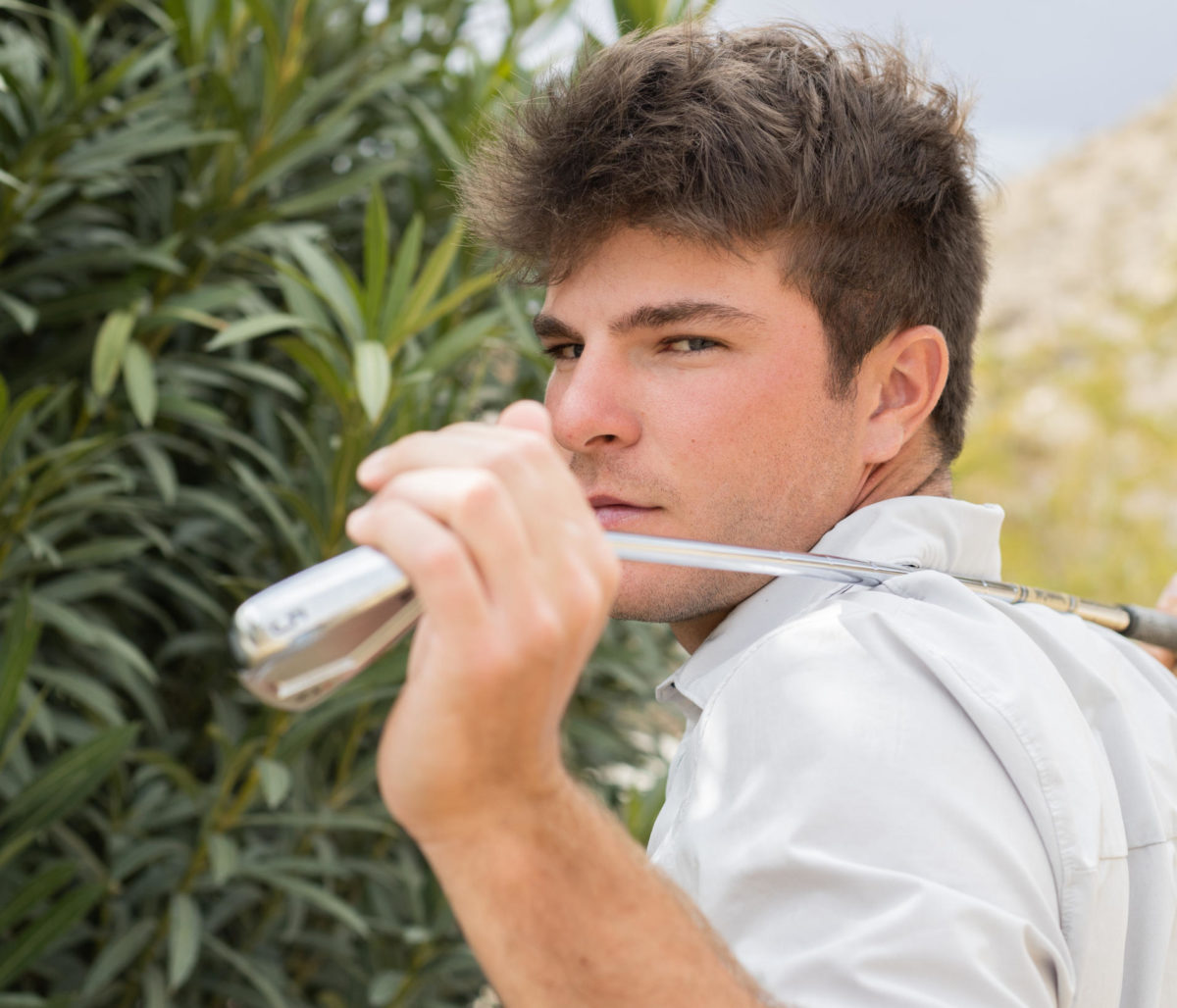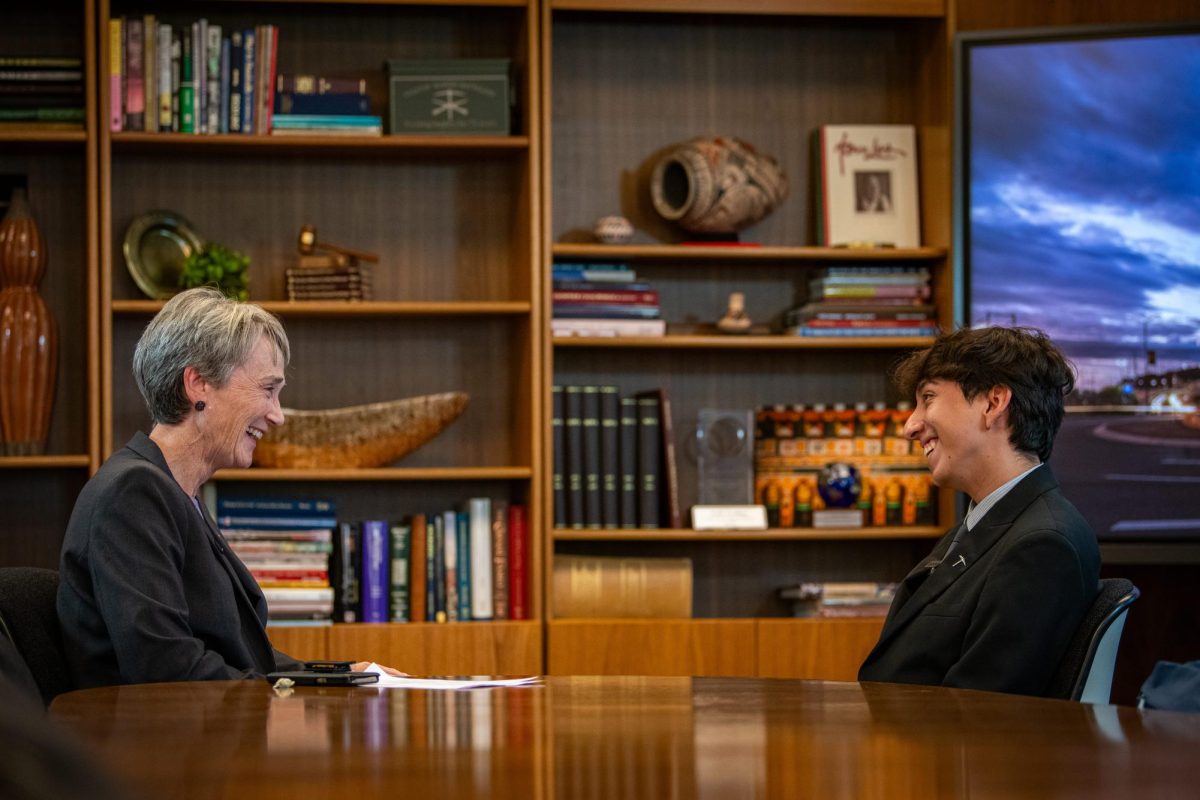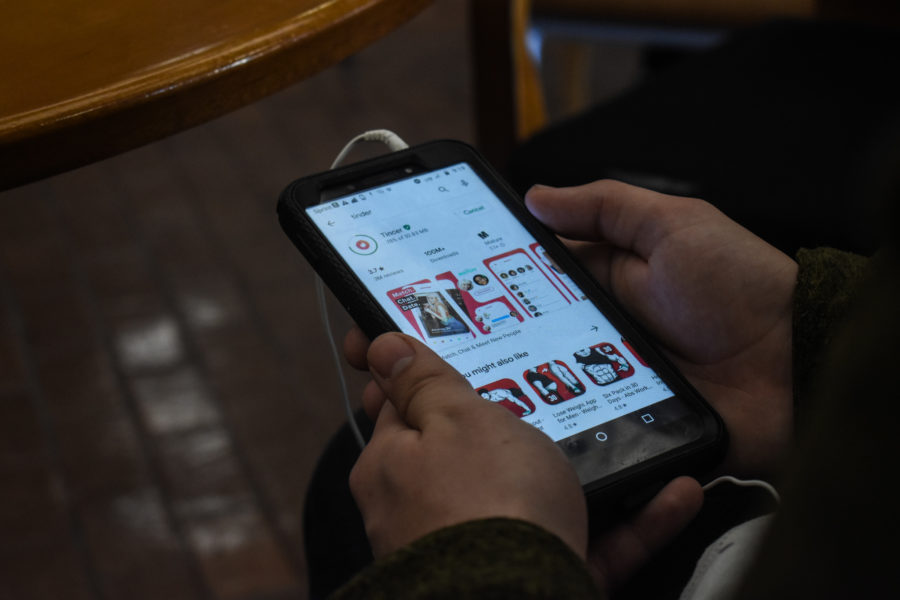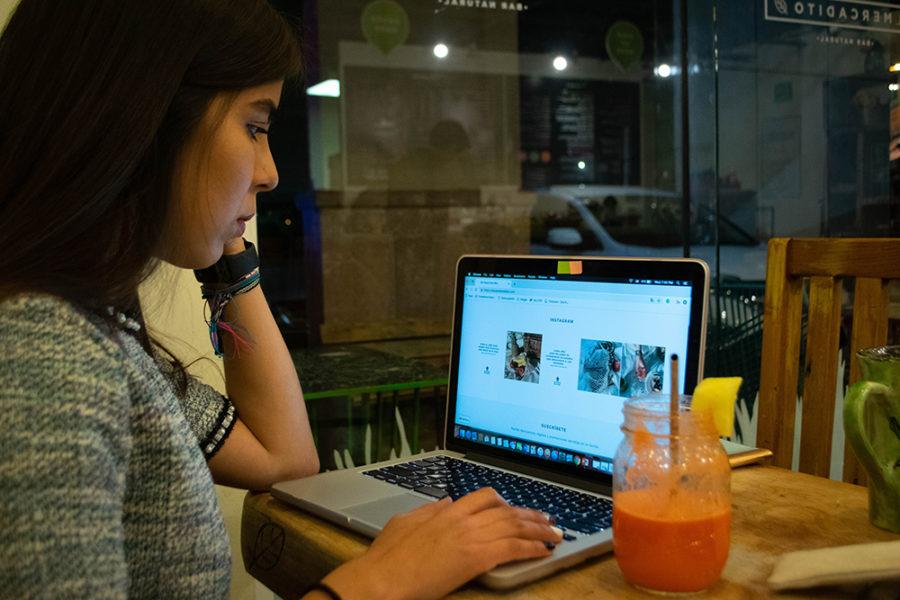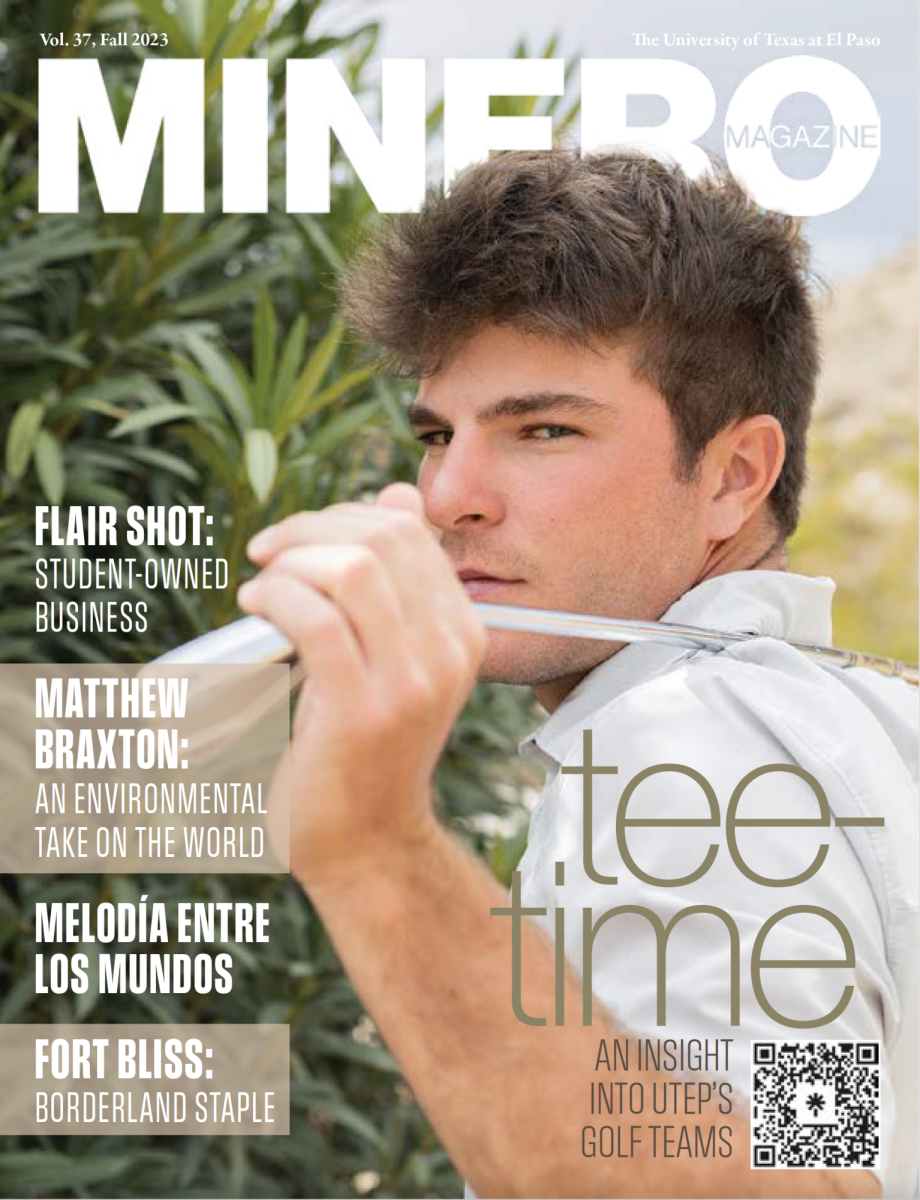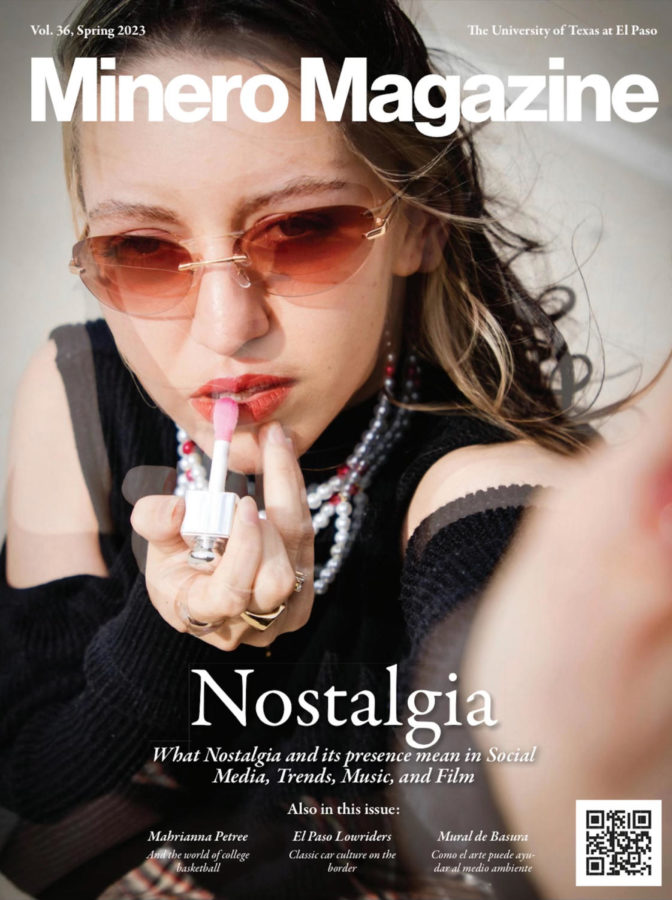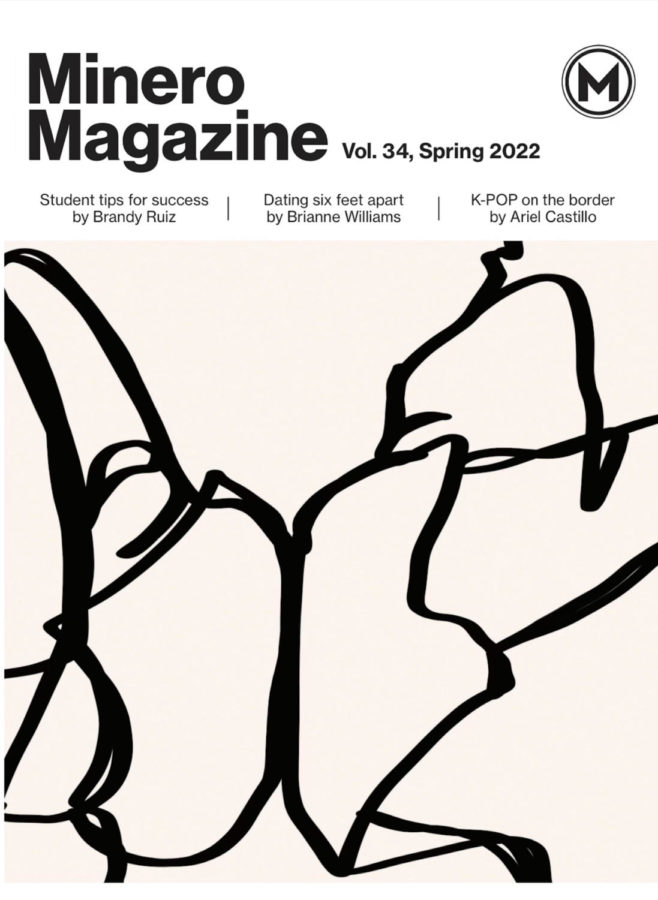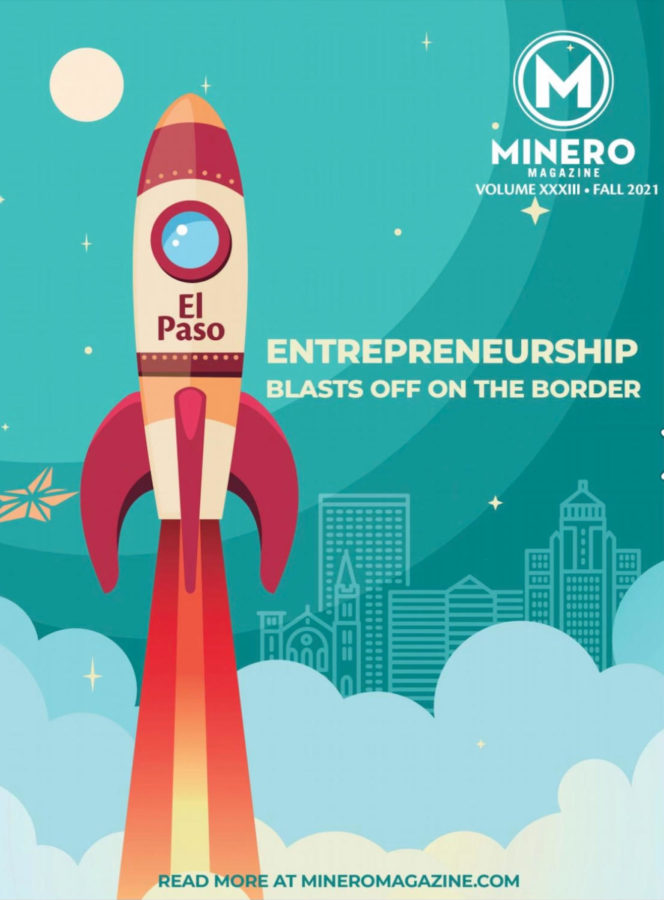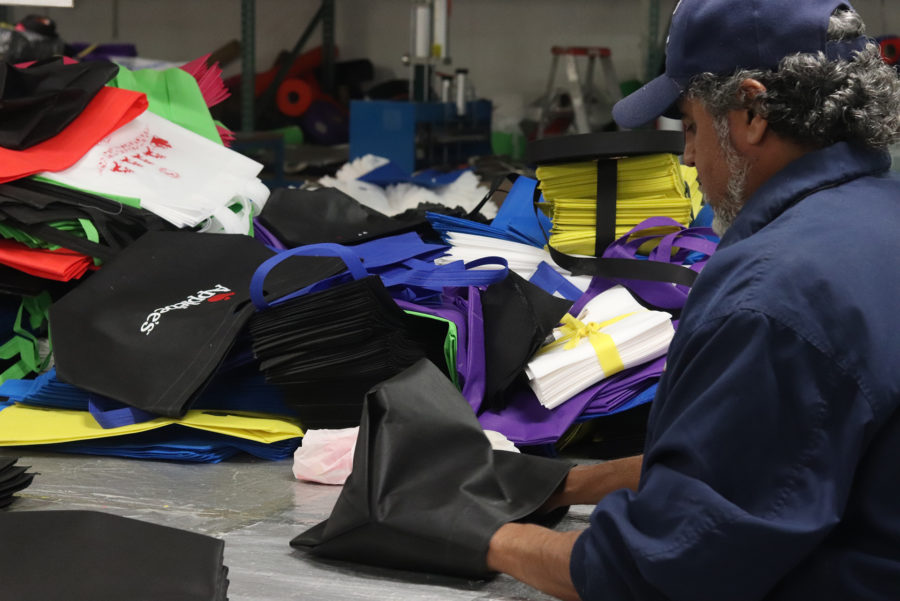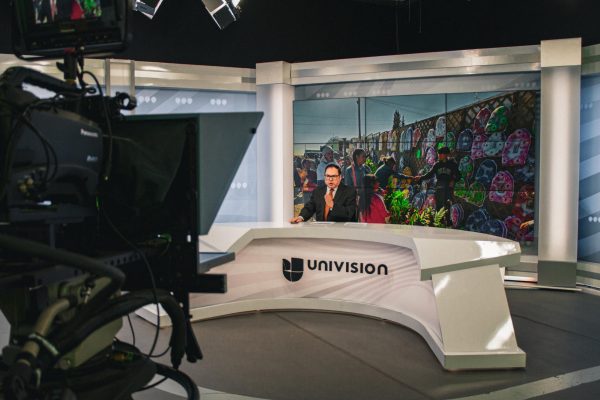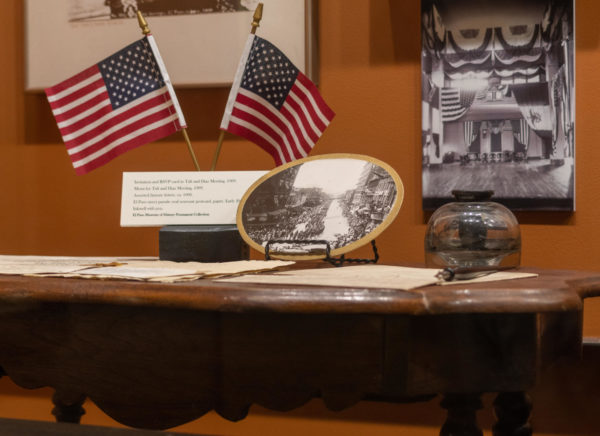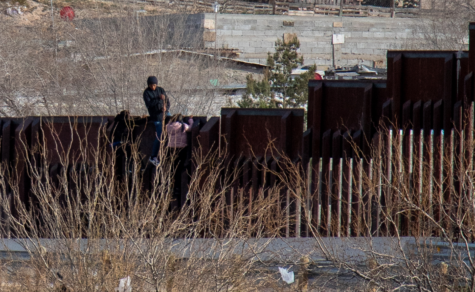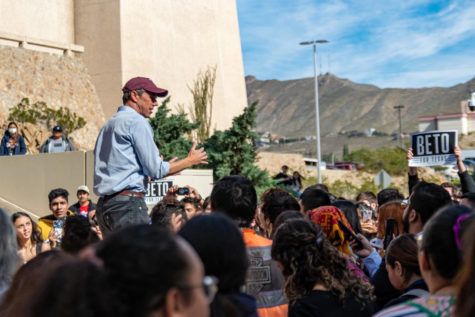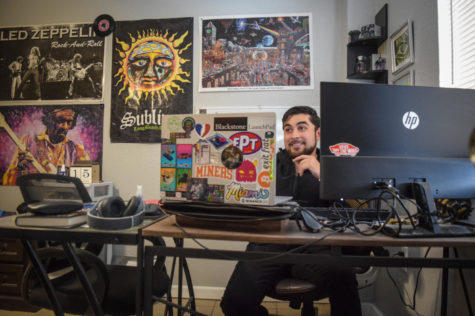Reducing waste in the borderland: A Bilateral Decision
February 28, 2019
With an increasing concern of environmental issues everywhere, new environmental trends such as “zero waste” are reaching the borderland as a possible solution to environmental effects of causing harm to the planet.
According to planetaid.org, a nonprofit organization that seeks to mobilize communities to bring worldwide environmental and social progress, the zero waste movement is defined as a lifestyle where people’s objective is to eliminate their trash output completely.
Marianne Karlsson, a 58-year-old Swedish national who currently lives in El Paso, started implementing zero waste solutions about four years ago to reduce her waste as much as possible.
“When I go to the grocery store, instead of using plastic bags, I have my own organic bags and I have tote bags to put my stuff in,” Karlsson says. “And when I go to restaurants, if I get take-out, I have my own containers to put the food.”
In 1996, when Karlsson arrived to the United States, she saw a vast lifestyle difference between Swedish and Americans, especially in regards to recycling and reducing waste.
“I was really concerned because at that time I wasn’t vegan, so we (my husband and I) drank milk. I poured milk in my coffee so when I first encountered those big gallon plastic things it was like, what do I do with this? Am I supposed to throw it away just in the garbage?” Karlsson says.
According to Karlsson, milk in Sweden is served in glass recipients. When comparing her home country Sweden with the United States, Karlsson also reflects on the differences in these countries.
“It’s easier to recycle in Sweden, the community takes times to educate people to do it and when to do it and you get incentives for being environmental concerned, it’s not so much into consumption in Sweden as here.”
The borderland seeking a sustainable environment
In May 2018, a recycling plant located in colonia Granjas de Santa Elena in Ciudad Juárez, caught on fire because of “compact waste highly flammable bales of plastic, cardboard and other materials burned,” Mexican magazine Vanguardia MX reported. The same article says the fire caused air pollution not only in Cd. Juárez but also in El Paso.
It is because of these environmental tragedies that certain Juarenses such as Ivan Eduardo Mendoza Gutierrez, 32, feel like they need to do something. Mendoza works for Eco Bolsas as a production engineer in bags and ecological manufactures in Cd. Juárez. He says the company is helping people consume less plastic by using their ecological bags.
“We are a company that manufactures our own ecological bags, we are not distributors like other companies in México that imports from China, we manufacture it here in Cd. Juárez,” Mendoza says. “Our fabric is made of recycled polypropylene plastic which enters the fifth classification of recycle.”
Mendoza says that about 1,000 to 2,000 ecological bags are made per day, depending on the incoming orders that the company receives.
Eco Bolsas is raising awareness in big companies such as Johnson & Johnson, S-Mart and even hospitals like Hospital Los Angeles, to protect the environment by reducing plastic and implementing biodegradable bags that decompose rapidly for people to use.
Mendoza also mentions that some states in México are taking the initiative into implementing laws to eliminate straws to reduce waste. Baja California Sur and Veracruz are two examples of states that have eliminated the use of plastics bags and straws. Recently, Chihuahua, has also prohibited the use of plastic straws this year under the Law of Prevention and Integral Management of Waste.
Irasema Coronado, Political Science professor at The University of Texas at El Paso, says that a way to increase recycling and reduce consumption in the borderland is to build a joint recycling plant with Cd. Juárez. She thinks that reducing waste in this region depends on both El Paso and Cd. Juárez.
“It will be smart if we have a joint recycling facility at Juárez, we (the United States and México) would share the cost, therefore more people, they probably consume less than we do because of the economy. Binational problems require binational solutions.”
But, what’s with the plastic waste?
Coronado says that the United States is a consumer-oriented society, meaning that people want new products based on trends, color, design, among others, while the older objects are just thrown away.
“Our economy is based on us buying things and gadgets, that’s part of it, we need to consume for the economy to work,” Coronado says. “One of the things that is a major problem is the manufacturing and the packaging of goods. In the past you would buy something, and it would last forever. Nowadays, it does not work after the first or second year because it’s planned obsolescence. So you go then and go buy another one. But, what people don’t think about is the waste.”
With a population of about 833,592 people in El Paso, the Environmental Services Department (ESD) collects more than 185,000 tons of garbage every year, leaving only 18.9 percent or 35,000 tons of recycle material.
Similarly, almost 35 million tons of plastic was generated in the United States in 2015, about 13 percent of the waste stream, according to the United States Environmental Protection Agency. Only 9.1 percent of plastics were recycled in 2015.
With these statistics in mind, the issue on where to send all the waste has increased, especially after China, the country taking 45 percent of the world’s plastic waste imports according to National Geographic, implemented restrictions. Since the U.S. is the biggest contributor of waste, recycling programs are being affected because of China’s closed-door policy.
“Now, with China’s door closed, much of that recycled plastic is likely ending up at your local landfill. China’s new policy could displace as much as 111 million metric tons of plastic waste by 2030,” Jenna Jambeck, a professor engineer from the University of Georgia, told National Geographic.
Ellen A. Smyth, Director of Environmental Services Department and UTEP guest speaker at Coronado’s doctoral seminar on Environmental Law and Policy, says all the junk that we consume and throw away is eventually going to local lands.
“There’s good junk and bad junk, but it’s all junk., so it’s going to the landfill eventually cause that’s where all junk goes. So, when you go to buy something, be particular about what you buy, just be particular. Don’t buy twelve of them, buy one. Don’t just buy to buy,” Smyth says.
UTEP: a sustainable campus?
Similarly to the states in México which are implementing environmental policies, UTEP has implemented measures to reduce waste in the university. The Green Fund Project was created to make it easier for students who want to support a sustainable environment on campus.
Each semester, three dollars are taken from a student’s fee tuition to help the Green Fund innovate projects in which students can propose their ideas or methods on how to improve UTEP going green, explains Sergio Baltazar, a UTEP student and chair of the Green Fund.
The most recent project from the Green Fund was a paperless marching band, in which the Associate Director of Bands and Director of Athletic Bands Andrew Hunter proposed to transition the band to a paperless model.
The paperless model was funded on September 18, 2018. Hunter explained his invention was aimed to tackle the high volume of paper UTEP uses every semester. With only four band performances each season, an average of 25 sets per show, paper usage can reach between 20,000 – 30,000 sheets, not including waste from reprints.
Is it a cultural factor or just laziness?
Mendoza urges Juarenses to start caring about the environment. He thinks that people’s concern is a big step toward increasing environmental awareness at Cd. Juárez, but that it has to start by people not being lazy.
“Because of laziness and for the product being cheap, people do not see the gravity of the problem that the cheap item at the end is costly for everyone,” Mendoza says. “It creates a lot of contamination, it harms the environment, and causes climate change which a lot of people think it’s not happening, but it is.”
Like Mendoza, Coronado agrees the impact of citizens sending waste into local landfills and natural resources may be a cause of culture participation.
“I think it’s a culture thing,” Coronado says. “Some people are conscious about recycle and more careful on how to reduce, reuse and recycle, but other people are not, for the reason that this is a consumer-oriented society.”
Celina Galicia, Communication Analyst at German factory Robert Bosch in Cd. Juárez, says the difference in how people between El Paso and Cd. Juárez use zero waste initiatives is significant because she has noticed more environmental awareness at El Paso, a city which she says, is also in a more consumer country.
“There are these two sides, for example in El Paso, I have noticed that maybe they’re a little bit more conscient in a certain way but it is also a more consumer country, for example the plastic water bottles, they sell packs of 24 for 3 dollars, or something like that, and I mean, you can just not buy that and refill your own water bottle, that’s something cool,” Galicia says. “However, in Juarez you don’t see that much, is not as sensitive, I don’t feel that is that conscious, there are recycling issues and it still far from the idea (of zero waste).”
What can be done?
Zero waste activities may be difficult to implement in border landers’ daily lives, and according to Coronado, they are impossible to implement.
“Zero waste does not exist, because by virtue of us waking up every day we waste whether it’s toilette paper, whether it’s food packaging, whether it’s containers, getting into our car, we are wasting,” Coronado says. “Zero waste is an aspirational goal that is very difficult to achieve, we just can’t, because of our lifestyle, our economy, if we purchase nothing and waste in nothing, then there wouldn’t be an economy, there wouldn’t be a tax pace, we couldn’t survive. Waste is unfortunate, a negative externality of our way of life, can we minimize it? Absolutely, can we totally eradicate it? No! Es una locura!”
At the same time, Coronado says that since waste is part of the economy system, society can implement zero waste by doing small actions.
“I make bread, I use these berries, so like, when people ask me ‘what’s in the bread?’ I’m like, everything. And if you are allergic to something don’t eat my bread cause I can’t honestly tell you what’s in there,” Coronado says. “And I have another one, so whenever I have, you know, salad leftover or corn, or zucchini, or broccoli, I throw it all in there and I make soup, and I whip it all up.”
Coronado also emphasizes the importance of planning her groceries to prevent food waste because she grew up “in a culture where, you know, waste was bad because there were hungry people in our community.”
Furthermore, another solution that can be made to save the environment and minimize waste is to buy reusable bags, reusable containers and even buy plant-based products like Karlsson does.
“I like natural products, for example my toothbrush has natural bristles, when I bought my orgonite was natural rubber not chemicals, I’m very much into plant-based products,” Karlsson says.
Implementing zero waste for El Pasoans and Juarenses, explains Mendoza, may be a challenge since most people grew up using plastic bags from the markets or taking disposable cups to a party that end up in the trash can.
“It can be achieved, it’s just a matter of changing the mentality to start helping the environment in eco-friendly ways,” Mendoza says.





